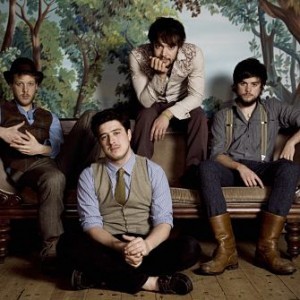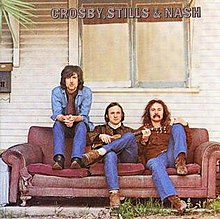Sunday, January 29, 2012
If you like Ryan Adams, thank The Faces
I could write reams about the chameleon-esque tendencies of enigmatic rocker Ryan Adams and the debt he owes to a wide swath of early rock and soul pioneers. (In fact, I did write a very comprehensive review of my favorite of Adams's albums, 2001's Gold. It is still available online here.)
But today, let's talk about a very specific debt Adams owes to Rod Stewart who, along with the rest of the lineup that called themselves The Faces, made four albums that have gone on to influence countless bands that followed, though they were never particularly commercially successful.
The Faces evolved in 1969 from an earlier incarnation called The Small Faces. It was not until they added Stewart and a pre-Rolling Stones Ron Wood to the lineup (and dropped the "Small" from their name) that they really hit their stride. They only released a handful of albums together before Stewart's burgeoning superstardom did them in -- their 1973 album Oooh La La, with its legendary cover art, was their last offering as a group.
But to this day, their influence is undeniable, and can be heard distinctly in at least one of the tracks Ryan Adams laid down on Gold.
Listen first to The Faces' biggest commercial hit, "Oooh La La," paying particular attention to the acoustic guitar lick immediately following the words "Oooh La La," which are finally uttered for the first time toward the end of the song:
Now listen to Ryan Adams sing "Rescue Blues":
You should immediately be able to pick out a very familiar guitar lick, this time played on an electric guitar, but repeated throughout the song like a kind of love letter to The Faces and 1973. The whole album is a love letter to a bygone era and this connection is just one small homage, but it is possibly my favorite moment on the album for its obvious reverence. So, if you like Ryan Adams (this song, at least), thank The Faces.
Labels:
If Thank,
Rod Stewart,
Ron Wood,
Ryan Adams,
The Faces
Saturday, January 21, 2012
If you like Adele, thank Etta James
Legendary blues singer Etta James passed away yesterday at the age of 73 (remarkably just three days after the death of Johnny Otis, the man who first discovered her singing with a girl-group called the Creolettes as a teenager.) Her incredible talent sustained a six-decade-long career and produced one of the biggest blues hits of all time, the inimitable "At Last." Her influence on modern music is probably immeasurable. She laid the groundwork for an entire generation of female R&B artists, and has been immortalized on film by no less than Beyonce in the greatly underappreciated movie, Cadillac Records.
But perhaps no current artist owes a greater creative debt to Etta James than Adele. Adele has had enormous success in the past few years by adhering very closely to the blueprint that Etta James first set down in the 1950s: throaty, impassioned vocals mixed with symphonic blues arrangements.
Take for example, the song "Turning Tables" from her latest album, 21:
Listen to the strings arrangement. The sad, defiant lyrics. The throaty push of her husky vocal tone. (This in particular is pure homage to Etta James, right down to the signature glottal rasp.)
Now compare that to Etta's 1961 hit "Fool That I Am:"
This song is rhythmically smoother than almost any Adele song (it was made for an era when men and women still swayed in each other's arms on dance floors occasionally), but otherwise every element of Adele's interpretation can be traced to this song, and others just like it.
Etta James was unparalleled at channeling raw emotion through her voice, a mantle that Adele has assumed, and which (I would argue) is the key to her success. So if you like Adele, thank Etta James. May she rest in peace.
Wednesday, January 18, 2012
If you like Mumford & Sons, thank... America
I think it's fair to say that the band America is best remembered (if they are remembered at all) for their 1972 AM radio hit "Horse with No Name," which is somewhat unfortunate, as that song has not aged as well as the rest of their catalog. That particular song sounds more trite and gimmicky now than it did when it was released, whereas the rest of their songs achieve a timeless blend of acoustic hooks and breezy vocal harmonies that evoke 70s-era California in the best possible way.
No song better illustrates their appealing folk-pop sound than "Ventura Highway," from their 1973 release Homecoming:
In this song, you hear a driving rhythmic insistence, complex minor-to-major chord progressions, a perpetual, jangly background guitar and beautiful vocal harmonies employed only on the choruses.
And if you're thinking any of that sounds familiar, it may have something to do with Mumford & Sons. Listen now to the ubiquitous "Little Lion Man" from their 2009 release Sigh No More:
Again you hear a driving rhythmic insistence paired with complex chord progressions. Again you hear beautiful vocal harmonies employed primarily on the choruses. And where America used a jangly, high-capoed guitar, Mumford & Sons famously uses a banjo to achieve the very same sound.
(It bears noting that America has influenced many bands that have come since. Fountains of Wayne's Adam Schlesinger cites them as a huge influence and even helped to produce their 2007 "comeback" album Here & Now.)
So if you like Mumford & Sons, remember... thank America.
Monday, January 09, 2012
If you like The Avett Brothers, thank The Band
The now-iconic Canadian rock band was still called The Hawks when they first met Bob Dylan in 1965, but by the time he asked them to join his tour as backing band later that year, they had already become simply The Band. In the roughly eight years they performed together under that name, The Band (including prolific songwriters Robbie Robertson and Levon Helm) amassed an extensive catalog of songs, all of which combined R&B-based rock and roll with Southern folk-country to forge a new sound that complemented the direction Dylan had taken since going electric.
It's a recipe that still works today, as evidenced by The Avett Brothers. Listen, for example, to "And It Spread" from their 2009 album I and Love and You:
That slight twang in the vocals. The confident, almost defiant acoustic guitar rhythm. The mournful, wandering fiddle line.
Now listen to The Band's version of "The Night They Drove Old Dixie Down," from their self-titled 1969 album,(a song written by Robertson and covered extensively ever since):
You'll hear the same twang in the vocals. The very same confident, defiant acoustic guitar (right down to the same rhythmic structure.) No mournful fiddle here, but a mournful, wandering harmonica instead.
This was the album that elevated The Band to the pantheon of classic rock gods, influencing all of their peers and, subsequently, countless bands that would follow. Including, evidently, the Avett Brothers. So if you like the Avett Brothers, remember... thank The Band.
Labels:
Bob Dylan,
If Thank,
Levon Helm,
Robbie Robertson,
The Avett Brothers,
the Band
Saturday, January 07, 2012
If you like Fleet Foxes, thank Crosby, Stills & Nash
The term "supergroup" didn't quite exist yet in 1969, when Crosby, Stills & Nash released their debut album. But if it had, they certainly would have qualified. All veterans of other successful rock bands of the early and mid-60s, the three founding members of CSN (they would not add Neil Young to the roster until later that year) pioneered a lush, vocally harmonic, folk-rock sound that continues to influence the most cutting-edge bands today.
Case in point? Fleet Foxes.
Listen first to "Bedouin Dress" off of Fleet Foxes' 2011 release, Helplessness Blues:
Listen to the acoustic guitar, the ever-expanding harmonies, the melody and the lyrics reminiscent of an old English folk song.
Now compare it to CSN's "Helplessly Hoping" from their self-titled debut in 1969:
The arrangement is a little more spare, yes. But you'll hear the same acoustic guitar, and most importantly you'll hear the same hauntingly gorgeous vocal harmonies, harmonies that were first adapted and perfected by this group. CSN builds toward a musical peak at "We are one... We are for each other," using the power of stacked vocal harmonies. Similarly, Fleet Foxes build toward a musical peak at the line "One Day at Innisfree," opting to drop out all the instruments at that point and let the vocal harmonies ring out a cappella.
Because in both cases, when vocals are this beautiful, nothing else is necessary.
Thursday, January 05, 2012
If you like Dale Earnhardt Jr. Jr., thank the Rolling Stones
One of the inalienable truths about music is that it all comes from somewhere; even the most revolutionary, innovative new sound will ultimately reveal an influence in something that has come before. But with the rapid cross-pollination of sound enabled by the explosion of music in the internet era, those influences are sometimes lost, or forgotten, or overlooked. So welcome to a new feature here at Lost Things Found: If you like __________, thank ___________.
To start the series, take a listen to this charming Dale Earnhardt Jr. Jr. song, "Simple Girl:"
That whistling! The ringing glock! The whimsical lyrics! The expanding harmonies! The polyphonic themes!
Where have we heard this before? Well, if you like "Simple Girl," by Dale Earnhardt Jr. Jr., you can thank... the Rolling Stones.
Listen now to "She's a Rainbow," from the Rolling Stones' 1967 album, Their Satanic Majesties' Request:
Sound familiar? Where you hear whistling in Dale Earnhardt Jr. Jr.'s version, the Stones play a ringing piano. There are "ooohs" instead of "da-das," yes. But the overall effect? Almost exactly the same song, right down to the lyrical content, "She's a simple girl" vs. "She's a rainbow." And in either incarnation, regardless, she's got a great song.
Subscribe to:
Comments (Atom)







